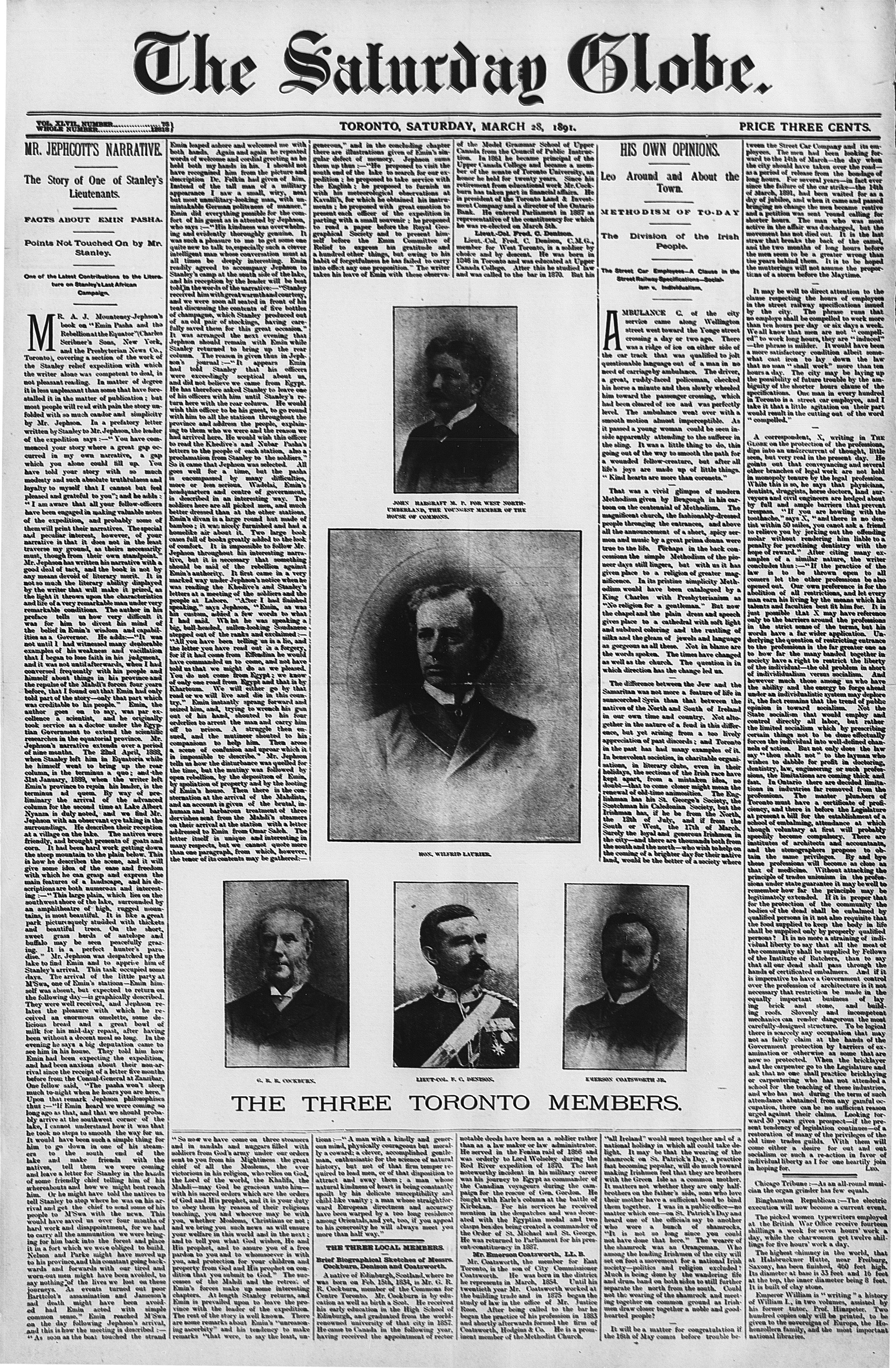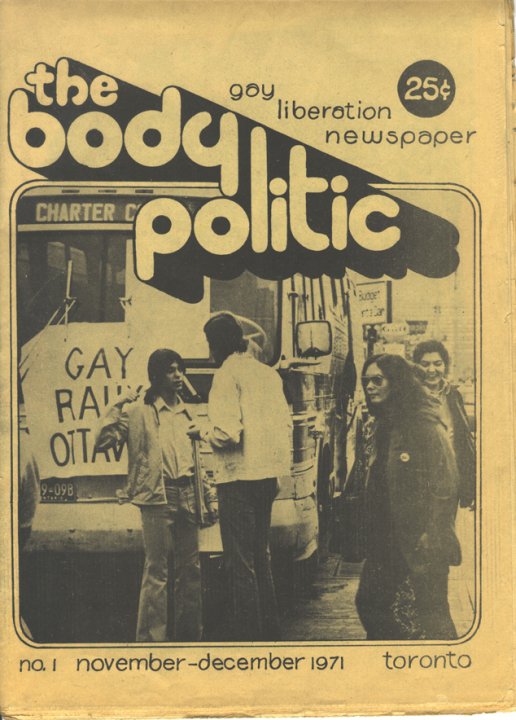Browse "Communications"
-
Article
Newspapers in Canada: 1800s–1900s
Independent newspapers were first established in Canada between about 1800 and 1850. During that period, printing presses became less expensive to establish and operate, and literacy rates and an appetite for news and views developed. Since publishers were less dependent on government subsidy than before, they were free to question and criticize the powers that be. As a result, an independent but not impartial journalism developed. From the mid-1800s to the early 1900s, newspapers became more profitable as populations and commerce expanded and reader and advertising revenues grew. During this time, mainstream newspapers represented the interests of political parties and cultural groups.
"https://d2ttikhf7xbzbs.cloudfront.net/media/media/8997ef4b-babd-48d9-ba3c-a4e1e4b23780.jpg" // resources/views/front/categories/view.blade.php
https://d2ttikhf7xbzbs.cloudfront.net/media/media/8997ef4b-babd-48d9-ba3c-a4e1e4b23780.jpg
-
Article
Pink Triangle Press
In 1975, the informal collective that had founded Canada’s leading gay liberation newspaper, the Body Politic, in 1971 incorporated as Pink Triangle Press (PTP). Now one of the oldest producers of queer media content in the world, Pink Triangle Press is responsible for Xtra Magazine, the travel guide Pink Ticket Travel, multiple dating services and the 2021 documentary Small Town Pride.
"https://d2ttikhf7xbzbs.cloudfront.net/media/media/9983096905_bc6352ed8c_o.jpg" // resources/views/front/categories/view.blade.php
https://d2ttikhf7xbzbs.cloudfront.net/media/media/9983096905_bc6352ed8c_o.jpg
-
Article
The New Canadian
The New Canadian (1938–2001) was an English-language newspaper published by and for the Japanese Canadian community. Initially, the newspaper was founded as a forum for second-generation Japanese Canadians to express and foster their identity as English-speaking Canadians and to support a mission of “cultural, economic, and political assimilation.” (See also Canadian English; Languages in use in Canada.) The newspaper became the primary source of both English- and Japanese-language news for Japanese Canadians during their forced uprooting from the west coast in the 1940s (see Internment of Japanese Canadians). It continued to be published in the postwar years, with its English-language content shifting towards social and community news while its Japanese-language section grew in importance for pre-war and postwar Japanese immigrants. The newspaper was sold to Japan Communications in 1990 and its final edition was published in 2001.
"https://d2ttikhf7xbzbs.cloudfront.net/thenewcanadian/thenewcanadian.jpg" // resources/views/front/categories/view.blade.php
https://d2ttikhf7xbzbs.cloudfront.net/thenewcanadian/thenewcanadian.jpg
-
Article
TVO
TVO (formerly TVOntario; also stylized in lowercase as tvo) is Ontario’s English-language public educational television broadcaster. Founded in September 1970, its flagship station, CICA-DT (channel 19), is located in Toronto. The station is required to be carried by all pay television providers in the province, and its content is streamed for free online. TVO is operated by the Ontario Educational Communications Authority (OECA), a crown corporation of the government of Ontario. Some of TVO’s best-known programs include Polka Dot Door, Today’s Special, Saturday Night at the Movies and The Agenda. A French-language sister station, La Chaîne française, was founded in 1987. It was renamed TFO (Télévision française de l’Ontario) in 1995.
"https://d2ttikhf7xbzbs.cloudfront.net/TVOntario_logo.svg.png" // resources/views/front/categories/view.blade.php
https://d2ttikhf7xbzbs.cloudfront.net/TVOntario_logo.svg.png
-
Article
W5
W5 (1966–2024) was an hour-long weekly investigative journalism news magazine program that aired on CTV. Its name refers to the central questions of journalism known as the “Five Ws” — who, what, where, when and why. W5 was Canada's most-watched current affairs and documentary program. It was also North America’s longest-running prime time current affairs program. It inspired other similar programs, such as CBS’s 60 Minutes and the CBC’s The Fifth Estate. W5 won six Gemini Awards, including two for Best News Information Series, and 14 Canadian Screen Awards, including the Gordon Sinclair Award for excellence in broadcast journalism. It was cancelled as a stand-alone program in February 2024. W5 was retained as the name for CTV News’ investigative journalism unit.
"https://d2ttikhf7xbzbs.cloudfront.net/media/media/2da3e6d2-49c8-423a-8280-eea0b56098b3.jpg" // resources/views/front/categories/view.blade.php
https://d2ttikhf7xbzbs.cloudfront.net/media/media/2da3e6d2-49c8-423a-8280-eea0b56098b3.jpg
